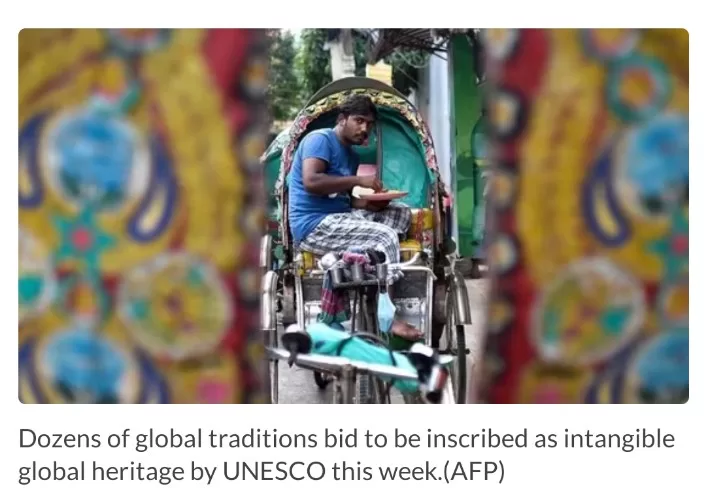In a significant development, UNESCO’s Intangible Cultural Heritage Committee is convening in Kasane, Botswana, to deliberate on the inclusion of various global traditions into its prestigious list. A total of 55 nominations are under scrutiny, with a focus on preserving cultural practices that contribute to the rich tapestry of global heritage.
Among the notable contenders are Italian opera singing, Bangladeshi rickshaw art, and the Peruvian delicacy of ceviche. Italy is vying for recognition of opera singing, emphasizing its cultural significance, while Bangladesh seeks to highlight the artistry involved in painting rickshaws, considering them as emblematic features of urban life in Dhaka.
A joint effort from Azerbaijan, Iran, Uzbekistan, and Turkey aims to secure a place for iftar, the communal meal shared by Muslims at the conclusion of Ramadan. This underscores the committee’s commitment to recognizing practices that hold cultural and social importance.
Other noteworthy bids include Ivory Coast’s application for the inclusion of the “traditional skills of loincloth weaving” and submissions from Cuba and Mexico, advocating for the acknowledgment of bolero.
The UNESCO Convention for the Safeguarding of Intangible Cultural Heritage, established in 2003 and ratified by 30 member states in 2006, plays a pivotal role in preserving traditions worldwide. The current list comprises 676 traditions, ranging from Neapolitan pizza to Brazilian capoeira and Spanish flamenco.
UNESCO asserts that the list has been instrumental in safeguarding vanishing traditions. For instance, Belgium’s successful bid for “shrimp fishing on horseback” led to increased interest and followership for this unique practice.
This ongoing initiative reflects UNESCO’s commitment to preserving the diversity and richness of global cultural heritage, ensuring that these traditions are passed down through generations. The outcomes of the committee’s deliberations will undoubtedly shape the cultural narrative for years to come.







